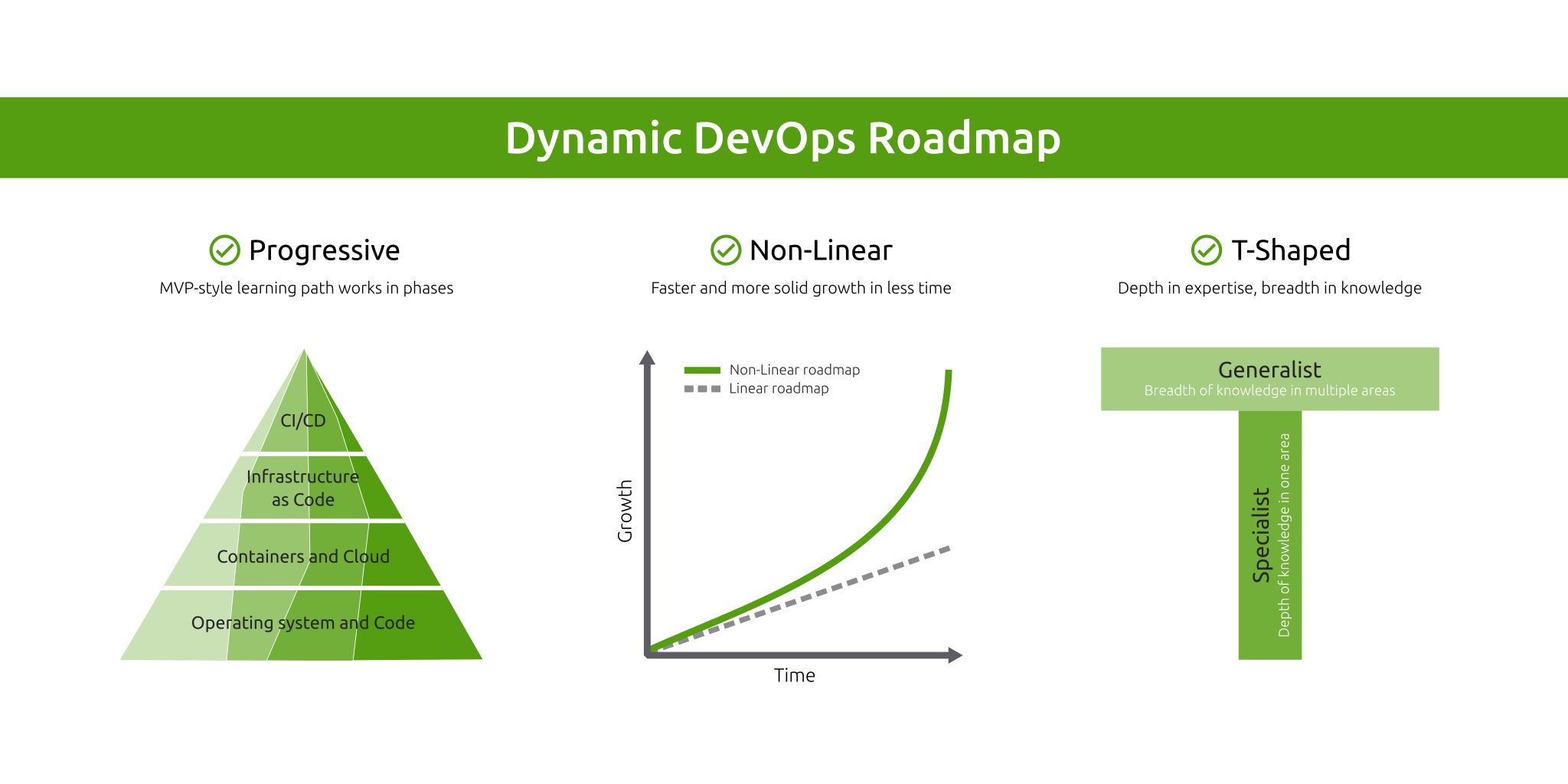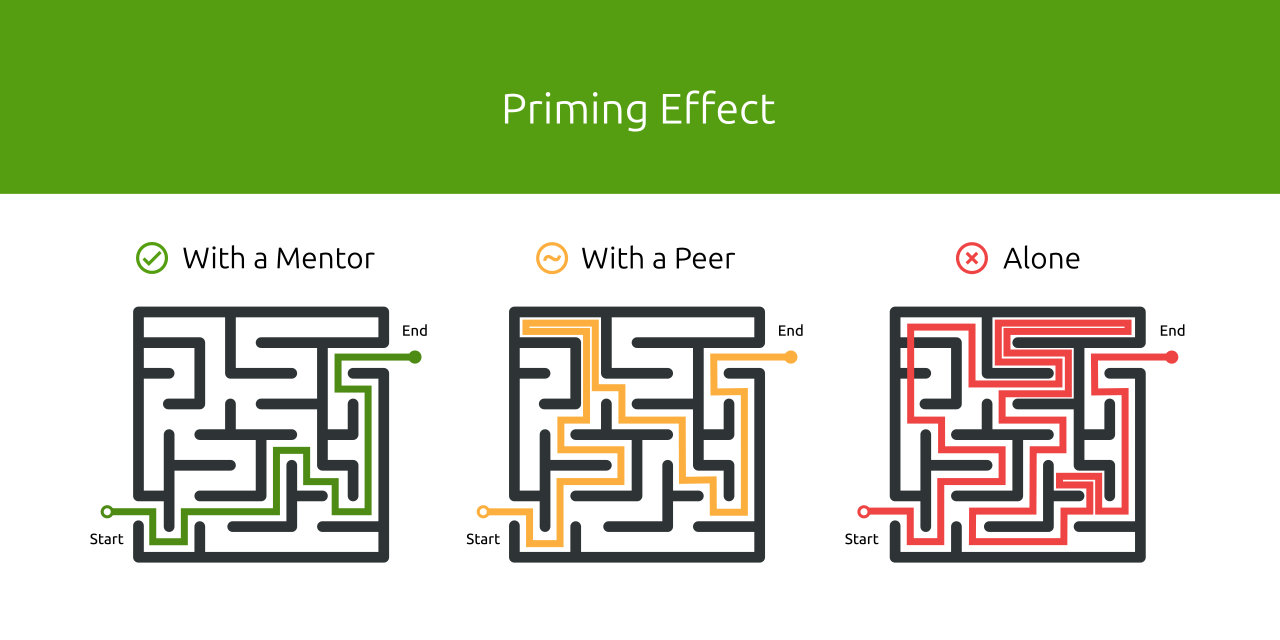Introduction

Overview
Starting a DevOps engineer role is challenging because the DevOps model has various implementations and patterns. It's even more complicated (but still possible) if that's your first job without previous software industry experience. Yet, many roadmaps like roadmap.sh/devops still follow a linear path (i.e., learn some topic to the end, then move to another, and so on). This doesn't work well in the DevOps role because a DevOps engineer should know a wide range of topics related to development and operations.
Adopting a non-linear learning roadmap (i.e., learning the use case and the concept behind it before learning the tools and improving the outcome continuously) increases your chances of entering the market and starting your first job as a DevOps engineer without previous software hands-on experience (although, in some cases, it could not be recommended to start a DevOps role as your first job).
Hence, the Dynamic DevOps Roadmap fills that gap using the same Agile methodologies and a following dynamic MVP style with hands-on projects designed by an experienced DevOps engineer, which has been highly successful.
That means first, understand the problem instead of just learning a bunch of tools then using iterative style, each iteration will cover most DevOps areas used in the job to build a T-shaped skills profile from day one (the skill types are covered in the next module). It's also essential to set the targeted market and organizations because, with different DevOps topologies, the DevOps engineer role requirements vary a lot.
Learning Strategy
This roadmap is designed as a hands-on and progressive project. It's not just about the tech aspects of DevOps but also end-to-end software production, as you will do in your daily job. For that reason, the roadmap mainly follows the same ideas of the SET model. But instead of survive, expand, transform it's basics, start, expand, transform, optimize. So, even though the SET model is more about business, we are using the same notion to build a roadmap like the real world.
Focus Areas
Technically, the roadmap focuses on the typical DevOps Engineer working for a software company. Yet, it still shares at least 90% of the needed skills with other roles like Cloud Engineer, Platform Engineer, and Site Reliability Engineer.
The roadmap has a multiphase industry-grade project that follows the Learning by Doing method (aka Problem-based Learning), which is also done in iterative phases where in each module you learn as you go and cover the whole DevOps cycle like Code, Containers, Testing, Continuous Integration, Continuous Delivery, Observability, and Infrastructure. Each phase of this project is tackled gradually as part of the roadmap modules. But it's also standalone, and you can work on it if you have the required knowledge for each phase.
DevOps Topology
This roadmap is designed for the cloud-native post-container era, which means it will mainly focus on modern practices like Cloud, Docker, and Kubernetes. That doesn't mean everything should be complex, but just about treating your servers like cattle, not pets. For example, using Kubernetes doesn't always mean you need to create or manage Kubernetes clusters! Many serverless Kubernetes solutions are now like AWS EKS Fargate or GCP GKE Autopilot. So this roadmap doesn't claim one way of doing DevOps because DevOps already has many implementations and topologies, but as mentioned, it focuses on modern practices and technologies.
Soft Skills

Working with a mentor or a peer (even on the same level) can influence the learning process and achieve better results.
Unlike many other roadmaps, this roadmap doesn't focus only on the purely technical aspects of DevOps but also includes planning and management. Another critical aspect of a successful DevOps Engineer is good communication skills! That's why it's recommended that you do this roadmap in a group. Read more why it is not recommended to start this roadmap alone? And always remember that, DevOps is about collaboration; DevOps Engineer is not a Lone Wolf!
Don't worry! We will dive into all those topics in more detail in the following modules.